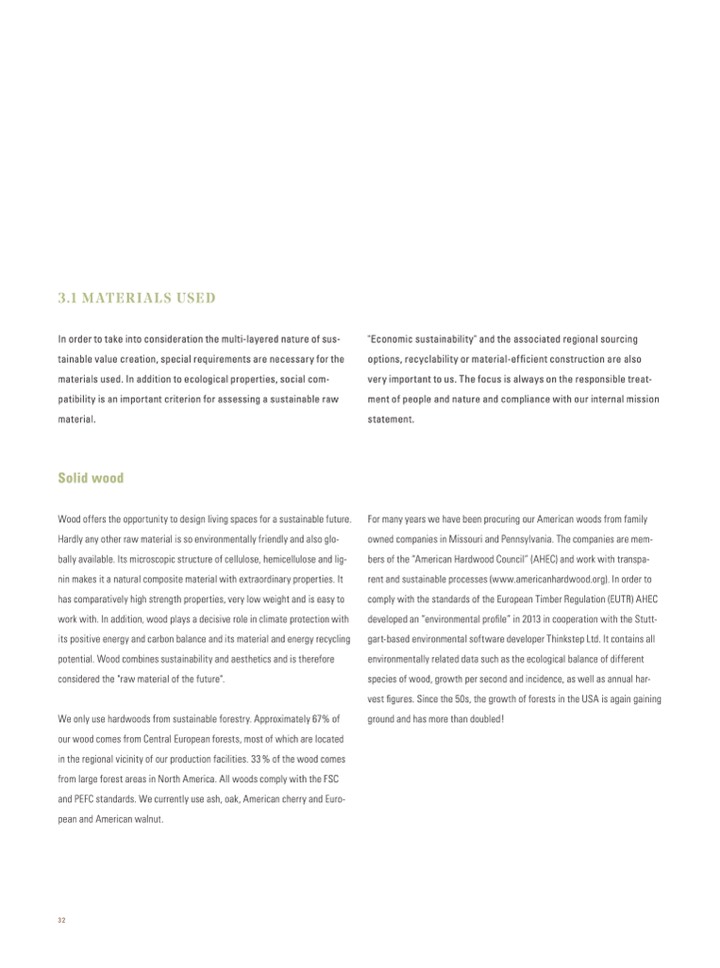
3.1 MATERIALS USED
In order to take into consideration the multi-layered nature of sus-
tainable value creation, special requirements are necessary for the
materials used. In addition to ecological properties, social com-
patibility is an important criterion for assessing a sustainable raw
material.
Solid wood
Wood offers the opportunity to design living spaces for a sustainable future.
Hardly any other raw material is so environmentally friendly and also glo-
bally available. Its microscopic structure of cellulose, hemicellulose and lig-
nin makes it a natural composite material with extraordinary properties. It
has comparatively high strength properties, very low weight and is easy to
work with. In addition, wood plays a decisive role in climate protection with
its positive energy and carbon balance and its material and energy recycling
potential. Wood combines sustainability and aesthetics and is therefore
considered the "raw material of the future".
We only use hardwoods from sustainable forestry. Approximately 67% of
our wood comes from Central European forests, most of which are located
in the regional vicinity of our production facilities. 33 % of the wood comes
from large forest areas in North America. All woods comply with the FSC
and PEFC standards. We currently use ash, oak, American cherry and Euro-
pean and American walnut.
"Economic sustainability" and the associated regional sourcing
options, recyclability or material-efficient construction are also
very important to us. The focus is always on the responsible treat-
ment of people and nature and compliance with our internal mission
statement.
For many years we have been procuring our American woods from family
owned companies in Missouri and Pennsylvania. The companies are mem-
bers of the “American Hardwood Council” (AHEC) and work with transpa-
rent and sustainable processes (www.americanhardwood.org). In order to
comply with the standards of the European Timber Regulation (EUTR) AHEC
developed an “environmental profile” in 2013 in cooperation with the Stutt-
gart-based environmental software developer Thinkstep Ltd. It contains all
environmentally related data such as the ecological balance of different
species of wood, growth per second and incidence, as well as annual har-
vest figures. Since the 50s, the growth of forests in the USA is again gaining
ground and has more than doubled!
32

